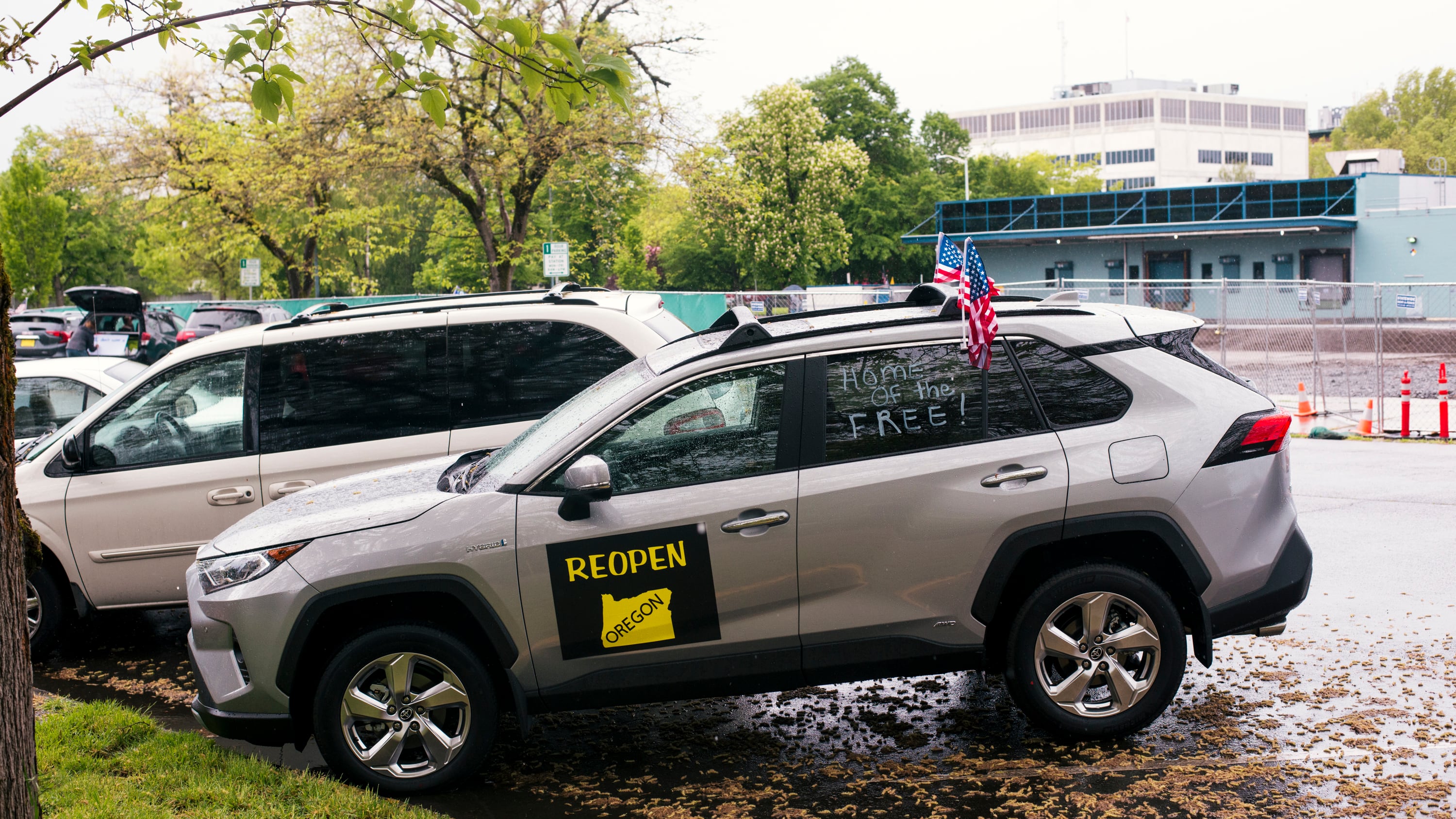Lindsey Graham, the owner of a Salem beauty salon who gained notoriety in the early days of the COVID-19 lockdown as a symbol of defiance against the governor's stay-home orders, filed a $100,000 civil rights complaint against Gov. Kate Brown and various officials at the state's Department of Human Services Child Welfare Division in Marion County Circuit Court on Dec. 18.
Such lawsuits against stay-home orders have become emblematic of the pandemic era in Oregon, providing conservative residents statewide with a legal framework by which they can challenge what they believe to be governmental overreach. The suits have typically failed.
But Graham's complaint is unique in one sense: It accuses the state of fabricating a child welfare complaint against her in response to her open defiance of the governor's executive order that shut down beauty salons in the spring.
"Each individual Defendant continued to scheme of harassment, intimidation, bullying and borderline extortion developed by Defendant State of Oregon and perpetuated by Defendant Kate Brown," the complaint says, "who viewed Graham's attempts to provide for her family as 'unfortunate' and 'irresponsible.'"
Her lawsuit was first reported by WW's news partner KATU-TV.
Inspired by the Reopen Oregon rally at the Capitol on May 2, the lawsuit says, Graham announced via Facebook on May 3 her intention to reopen Glamour Salon, which she did May 5. The day prior, the complaint says, a state agency contacted her.
"On May 4th, 2020," the complaint says, "Graham received the first of what would be many communications from various state of Oregon agencies who were attempting to bully, intimidate, frighten and terrorize Graham into not 're-opening.'"
The first contact came from Oregon Occupational Safety and Health, the complaint says, which allegedly threatened Graham with a $70,000 fine. OSHA did fine Graham subsequently, for a smaller sum of $14,000 around May 15. The second state contact, the complaint alleges, was a May 6 letter from the Health Licensing Office threatening to revoke Graham's individual and facilities licenses and potentially level criminal penalties.
"Little did Graham know that the worst was yet to come," the complaint says.
On the morning of May 6, the lawsuit says, DHS's Child Welfare Division received an anonymous complaint about Graham and her three children.
"The 'alleged complaint' is a complete and total fabrication by Defendant Oregon Department of Human Services, Child Welfare Division to again target Graham and Glamour, this time by making the battle personal and doing the unthinkable—going after Graham's family," the lawsuit says.
The lawsuit further alleges that the complaint was based on "hearsay" and "rumors." Nevertheless, Graham alleges, it prompted DHS officials to interview Graham's family on May 11. The lawsuit says the case was closed because the claims were unsubstantiated.
"The severe emotional distress suffered by Graham is a reasonably foreseeable consequence of the outrageous conduct of the Defendants," the complaint says. "The individual Defendants, any one of them, could have stopped the persecution of Graham, but not a single person stepped in to do the right thing."
The Department of Human Services tells WW that, due to confidentiality laws, it cannot confirm whether an investigation occurred, and that the agency does not comment on pending litigation.
"I want to stress however, that not following Gov. Brown's Stay Home, Save Lives executive order or not following physical distancing guidelines would never be a reason to assign a [Child Protective Services] assessment," says Sunny Petit, a spokeswoman for DHS.
A spokeswoman for the governor declined to comment, citing pending litigation.
Graham is seeking $100,000. She accuses the defendants of violating her First and 14th amendment rights, intentional infliction of emotional distress and abuse of power and wrongful use of civil proceedings.

